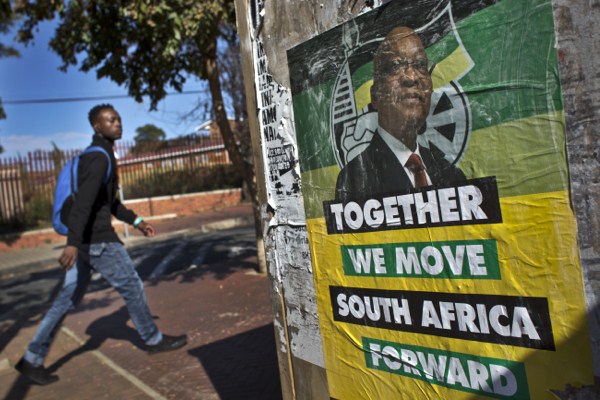Since May 2009, Jacob Zuma’s leadership of South Africa has played out against a backdrop of corruption scandals and other damaging revelations that have drained the lifeblood from his presidency. Crisis management has effectively become Zuma’s modus operandi, with short-term political survival eclipsing the need to provide South Africa with stable and effective governance. Zuma’s re-election last May, following the decisive, if qualified, victory of the African National Congress (ANC) in national elections, did not provide the hoped-for new beginning. That has the ANC hierarchy scrambling.
Zuma contaminates contemporary South African politics so much that it is difficult to envisage things turning around while he remains at the helm. As a result, South Africa faces the prospect of a lost political decade and a largely squandered presidency. That raises a range of questions for the ANC as it seeks to balance the short-term instinct to rally round a besieged leader against its own medium- and long-term political fortunes that Zuma continues to jeopardize.
Zuma’s re-election failed to enhance his authority or provide the platform for a successful second term. For the third consecutive poll, Zuma lowered the ANC’s vote total; the party now looks vulnerable in many of the big municipalities ahead of the 2016 local elections. The campaign was fought on the defensive, with the ANC constantly fending off accusations that Zuma had misused public money and received undue benefits as a result of the supposed “security upgrades” provided at considerable state expense to his private residence in Nkandla.

